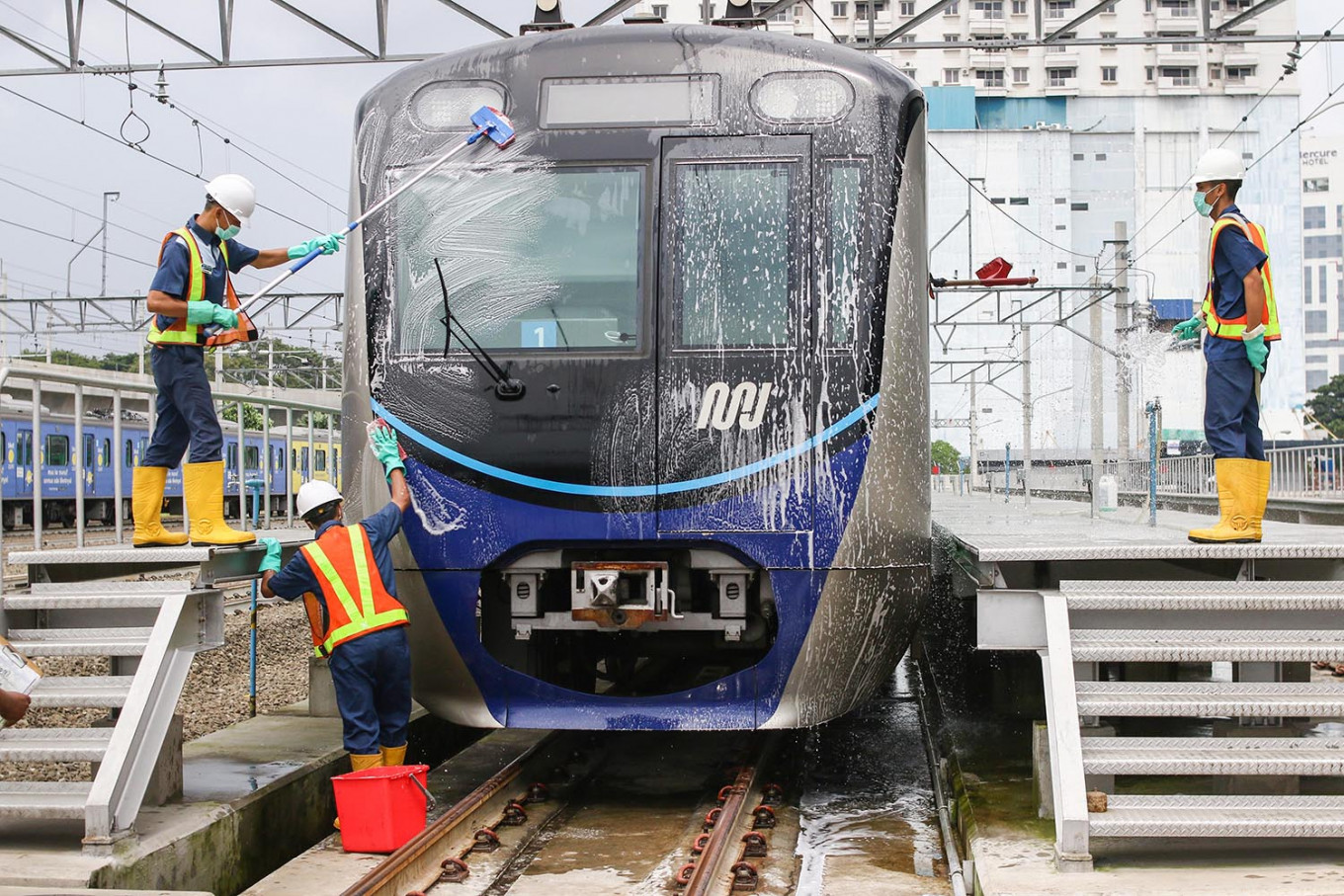Popular Reads
Top Results
Can't find what you're looking for?
View all search resultsPopular Reads
Top Results
Can't find what you're looking for?
View all search resultsMRT Jakarta drafts new business model amid falling ridership
Empty spaces in MRT stations will be used for coworking spaces equipped with various features, including video conferencing.
Change text size
Gift Premium Articles
to Anyone
C
ity-owned public transportation company PT MRT Jakarta is reviewing plans to switch to a new business model after suffering a dramatic fall in ridership during large-scale social restrictions (PSBB) for the COVID-19 outbreak.
“[The new business plan] will provide new business values for MRT Jakarta. This is what we call ‘business beyond normal’,” MRT Jakarta president director William Sabandar said during a press briefing on Thursday.
He added that the model would combine three business components he referred to as “beyond ridership, beyond physical mobility and beyond transport network”.
As the MRT operator can no longer rely on ridership as a business parameter, it will prioritize non-farebox income in its beyond ridership scheme while promoting the branding value of living a healthy lifestyle.
Read also: MRT Jakarta back to normalcy, but with limited capacity
Empty spaces in MRT stations will be used for coworking spaces equipped with various features, including video conferencing.
In addition, MRT Jakarta will push for the development of mobile ticketing, smart vending machines, cashless retail transactions, online training for start-ups and small and medium-sized businesses as well as delivery services.
The beyond physical mobility component will focus on virtual mobility to develop digital businesses, including the use of websites and social media for advertising and other commercial purposes.
The operator recently launched MRTJ accelerator with aims to collaborate with start-ups in its digital activities. The program was slated to start between August and September.
“MRT Jakarta is inviting local start-ups to help us develop digital ecosystems along MRT Jakarta routes and MRT Jakarta TOD areas,” William said, referring to the transit-oriented development.
Read also: MRT Jakarta delays phase 2 construction amid COVID-19 outbreak
The approach is in line with the beyond transport network component, which will focus on not only developing more routes but also connecting areas around MRT stations for urban regeneration, especially in the upcoming second phase of the MRT Jakarta, which stretches from the Hotel Indonesia traffic circle in Central Jakarta to Kota in West Jakarta.
The number of MRT Jakarta passengers dropped dramatically during the implementation of PSBB measures between April and June. The operator served an average of 90,000 to 100,000 passengers daily between January and mid-March, but the number dropped to 5,000 in April and 2,000 in May.
Since the city began easing restrictions on Monday, the number of passengers has slowly risen to 13,000 a day.
“However, the increase is yet to be significant because some businesses and malls have yet to resume operations until [June 15],” William said, projecting the figure to rise to 60,000 to 70,000 in July.










